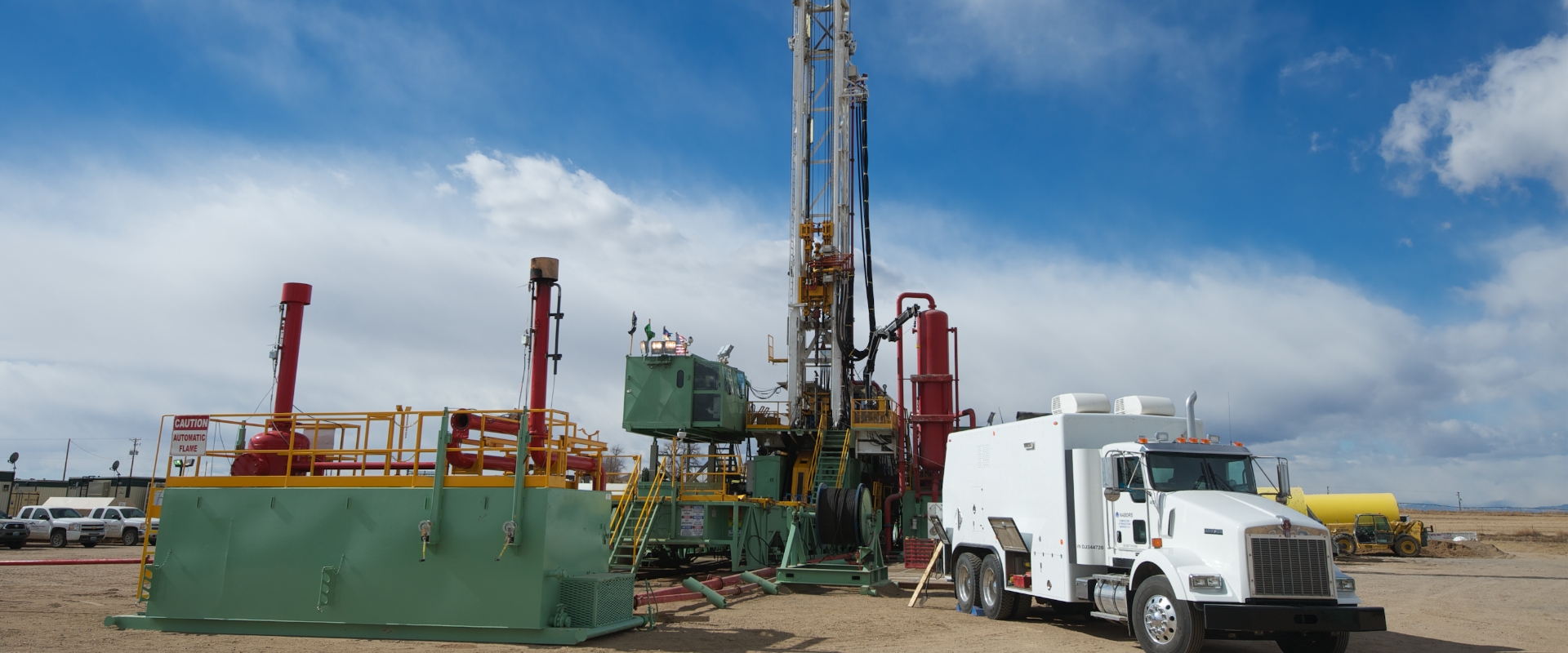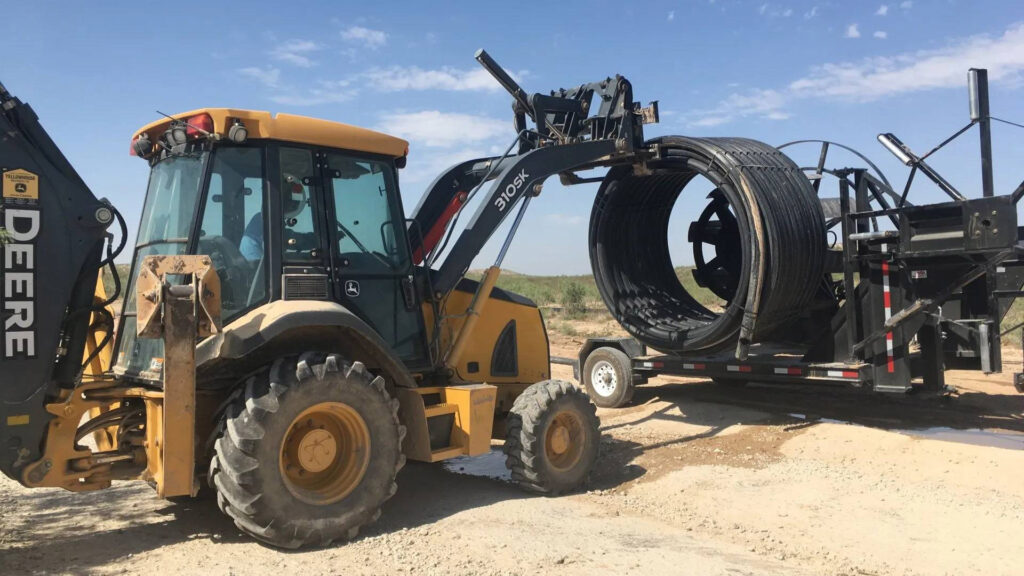Superior Oilfield Rentals oilfield: importance for drilling projects
Wiki Article
A Comprehensive Overview to the Numerous Sorts Of Oil Field Equipment and Pipeline Equipment Available
The oil and gas industry depends heavily on specific tools for reliable extraction and transportation. Various sorts of machinery, from drilling rigs to tank, play important functions in this complicated process. Each tool serves unique features that add to overall functional success. Understanding these components is necessary for anyone associated with the industry. As the market progresses, so as well do the innovations that support it. What innovations are on the perspective?
Drilling Rigs: The Foundation of Oil Exploration
Drilling rigs act as the important equipment in the domain of oil exploration, making it possible for companies to gain access to hydrocarbon reserves buried deep under the Earth's surface. These rigs can be found in various types, consisting of land rigs, offshore rigs, and mobile systems, each made to operate in details environments. Geared up with innovative technology, drilling rigs can permeate geological developments with accuracy, making certain efficient resource removal. The architectural integrity and operational capacities of these rigs are crucial, as they need to hold up against severe conditions and substantial stress. The option of a drilling gear impacts the total job price and timeline, making it an essential consideration for oil business seeking to maximize their exploration efforts and optimize efficiency in their operations.Pumps: Vital for Fluid Activity
In the oil removal process, the duty of pumps is significant, facilitating the motion of liquids throughout various stages of manufacturing. Pumps are important for moving unrefined oil, water, and other liquids from below ground tanks to the surface and then via pipes to refineries. They are available in various types, including centrifugal, favorable variation, and submersible pumps, each serving specific objectives based upon the fluid characteristics and functional demands. Centrifugal pumps are frequently utilized for their efficiency in high-flow applications, while favorable displacement pumps master managing viscous liquids. The option of pump impacts total efficiency, functional safety and security, and upkeep prices. Appropriate option and maintenance of pumps are vital for optimizing manufacturing and lessening downtime in oil field procedures.Shutoffs: Managing Flow and Pressure

Valves play a crucial function in managing the circulation and pressure of fluids within oil fields and pipes. Numerous sorts of shutoffs offer distinctive applications, each designed to accomplish particular features fundamental for reliable operation - Superior Rentals near me. Recognizing the qualities and uses of these shutoffs is crucial for enhancing system performance and safety and security
Types of Valves
Vital parts in oil area procedures, valves play an important duty in managing the flow and pressure of fluids within pipelines and tools. Numerous kinds of shutoffs are utilized to meet the diverse requirements of oil and gas production. Common kinds include gateway valves, which give a straight-line flow and minimal pressure decline; world shutoffs, understood for their throttling abilities; and sphere valves, identified for their quick on/off control. In addition, check shutoffs protect against heartburn, while butterfly shutoffs provide a light-weight solution for regulating flow. Each valve type is developed with specific materials and arrangements to endure the severe conditions typically discovered in oil fields, making sure dependability and efficiency in procedures. Understanding these types is critical for efficient system management.Valve Applications and Functions
While numerous types of valves offer distinct functions, their key applications rotate around controlling flow and pressure within oil and gas systems. Shutoffs such as gate, globe, and ball valves manage liquid activity, making sure peak efficiency and safety. Gateway valves are generally used for on/off control, providing marginal flow resistance. Globe shutoffs, on the various other hand, deal specific flow regulation, making them appropriate for throttling applications. Round shutoffs are favored for their quick operation and limited securing capacities. In enhancement, pressure safety valve are crucial for avoiding system overpressure, guarding equipment integrity. In general, the ideal selection and application of valves enhance functional performance, making sure the reputable transportation of oil and gas via pipelines and handling centers.Compressors: Enhancing Gas Transportation
Compressors play a vital duty in the reliable transportation of gas, guaranteeing that it relocates efficiently via pipes over cross countries. These gadgets increase the stress of all-natural gas, enabling it to get rid of friction and altitude adjustments within the pipeline system. Furthermore, compressors facilitate the balancing of supply and need, accommodating fluctuations in usage and manufacturing prices. Different sorts of compressors are used in the industry, including centrifugal, reciprocating, and rotary screw compressors, each offering distinct advantages based on the functional needs. Regular maintenance of these compressors is vital to make the most of performance and decrease downtime, inevitably adding to a reputable gas transport network. Their crucial function emphasizes the value of compressors in the overall oil and gas infrastructure.Storage Tanks: Safe and Efficient Liquid Administration
Reliable transportation of natural gas counts on various supporting systems, among which is the proper monitoring of tank. These storage tanks play a crucial function in securely including liquids, guaranteeing that functional effectiveness is maintained while minimizing ecological dangers. Built from resilient products, they are created to withstand high pressures and harsh components. Correctly sized and purposefully located, storage space tanks help with the smooth circulation of gas and other liquids, stopping bottlenecks in supply chains. Normal upkeep and monitoring are necessary to discover leaks or architectural issues, advertising safety and conformity with governing requirements. Inevitably, the reliable monitoring of tank is crucial for the overall integrity and dependability of the oil and gas industry's liquid handling systems.
Pipeline Systems: Framework for Transportation
Pipeline systems function as the backbone of the oil and gas industry, facilitating the efficient transport of hydrocarbons over huge distances. These systems are composed of numerous elements, including pipelines, valves, pumps, and compressors, all diligently developed here to ensure smooth circulation. The materials made use of in pipeline construction, often steel or high-density polyethylene, are chosen for sturdiness and resistance to rust. Pipeline networks can extend throughout land and water, connecting manufacturing sites to refineries and distribution. In addition, advanced technology enables real-time surveillance of flow prices and stress degrees, enhancing functional effectiveness. The critical positioning of these pipelines minimizes environmental effect while maximizing resource availability, consequently playing a vital role in conference energy demands worldwide.Safety Equipment: Making Sure Employee and Environmental Security
The procedure of pipeline systems, while vital for energy transportation, likewise offers significant security obstacles for employees and the setting. Safety tools plays a substantial function in minimizing these dangers. Individual protective devices (PPE) such as helmets, handwear covers, and non-slip footwear safeguards employees from physical dangers. In addition, gas discovery systems check for leakages, making sure that damaging compounds do not posture a threat to workers or the bordering ecosystem. Emergency situation closure systems are necessary for promptly halting operations throughout a situation, protecting against potential disasters. Spill control products, consisting of absorbents and obstacles, are fundamental for decreasing ecological impact. Generally, investing in comprehensive safety and security tools is crucial for keeping functional stability and shielding both workers and the atmosphere in the oil and gas industry.
Regularly Asked Concerns
Just how Do I Select the Right Oil Field Equipment for My Task?
Selecting the ideal oil area devices involves evaluating project specifications, budget restraints, and operational needs. Take into consideration factors such as tools dependability, compatibility with existing systems, and the supplier's reputation to guarantee peak efficiency and safety.What Are the Upkeep Needs for Oil Field Equipment?
Upkeep demands for oil area equipment consist of normal inspections, lubrication, and prompt repair work. Operators ought to additionally follow manufacturer standards, screen efficiency metrics, and guarantee compliance with safety guidelines to improve long life and effectiveness.
How Can I Ensure Compliance With Environmental Laws?
To ensure compliance with ecological regulations, companies must perform normal audits, carry out ideal techniques, buy training, preserve appropriate documents, and remain updated on regulations (Superior Rentals near me). Cooperation with environmental firms can also enhance adherence to regulationsWhat Is the Typical Life-span of Pipeline Equipment?
The typical life expectancy of pipeline equipment usually ranges from 20 to half a century, depending on factors such as worldly top quality, ecological problems, and upkeep practices. Normal inspections can considerably affect longevity and functional effectiveness.How Do I Securely Move Oil Field Equipment to Remote Locations?
Transporting oil field devices to remote areas needs careful planning, consisting of course evaluation, securing licenses, using suitable vehicles, and guaranteeing safety and security protocols are adhered to. Correct training and interaction among staffs are crucial for effective transport.Report this wiki page